In June, we initiated the Walking Lightly campaign, with people from all walks of life joining us in rethinking our relationship with our planet and how we could walk on it more mindfully and respectfully. It gave us the opportunity to delve into the stories of so many ordinary people doing extraordinary and valuable work in the space of waste management, and doing it in a way that has inspired others to follow suit. In the coming weeks, we will be featuring a few of these stories as a multi-part series.
This month also happens to be Plastic-Free July, an initiative of the Plastic Free Foundation that has encouraged thousands of individuals and organisations across the world to join the challenge. To kick off the series, we start with a basic question: Why go zero-waste?
Zero-waste is an approach that intends to prevent waste from going to landfills or accumulate in other natural ecosystems such as rivers and oceans. This is achieved through various means such as generating less waste or introducing circular loops (repair, reuse, repurpose, recycle) or better end-of-lifecycle strategies. Reducing the amount of waste we generate involves being mindful about the material aspects of our day-to-day life. This can be challenging because most of us are not conditioned to think about what and how much we are tossing into our bins. It takes patience, effort and constant rewiring to be cognizant of how much waste we are generating. If you think about it, the amount of waste that we generate and how it is handled today, comes at a very high cost to our environment, to our health and to those who are unable to better protect themselves from its impact. This is an incremental cost to our future, collective well-being (Watch this video from our latest podcast, The Climate Conversations, wherein Rainmatter’s founders talk about what these trade-offs and choices mean to them and why it is worth doing it nevertheless).

Single use containers are often lined with plastic making them difficult to recycle. They’re also not recycled unless not properly sorted, cleaned and sent to a recycling facility. Image source: Unsplash
The phrase ‘zero-waste’ may sound overwhelming, but adopting a zero-waste lifestyle is as much about the intention as it is about a proactive, mindful choice. The result may not be perfect, but a sincere effort in reducing waste is a worthy choice.
Wanting to go zero-waste doesn’t only mean rethinking what and how we consume, it also means realising and appreciating the intrinsic value of resources. It can mean being a “brand” that sets itself a higher benchmark – to do right by the planet, by the people and by its stakeholders. Embracing a zero-waste mindset also fuels innovation and encourages the development of new technologies and business models.
Grappling with complexity

Considering how severe the problem of ocean pollution has become, laws and policies have been put in place worldwide to prevent and clean up marine debris and pollutants. The UN has also included the reduction of marine pollution as part of Sustainable Development Goal 14, which focuses on improving life below water. Image: Naja Jenson, Unsplash.
The challenge of dealing with waste is a hugely complex one, having many intricacies that require a holistic approach. At the Rainmatter Foundation, our immediate response has been to support efforts in the management of waste i.e. after the waste has already been generated. But no matter the ground efforts by folks at Waste Warriors and Saahas (and numerous others of their ilk), we have to ask ourselves if it is possible to handle an ever-increasing amount of waste, much of which ends up in landfills? And what is the environmental and health cost of all this waste that we generate?
It then becomes apparent that we also need to invest in more circular loops as well as battle for low-waste and zero-waste strategies. If we reimagine production processes from a materiality and end-of-lifecycle perspective, we will be able to reduce the amount and quality of new waste generated. Our partner organisations Zerocircle and Infinity Box are reimagining the possibilities to deal with the problem of single-use packaging with a shift towards better choices and materiality.
Other aspects of deepening the impact in waste management include advocacy, awareness and education. This is where folks like SWMRT come in – they engage with our administrators, be they in our civic bodies or state governments, to get segregation-at-source kind of policy mandates, even as awareness through efforts like the Zero-Waste Pledge, composting and waste workshops, facilitation for low-waste events and offices help engage more and more people to champion this cause.
Starting from the start
Perhaps sustainability requires us to look back and look ahead in equal measure. Looking back at how people led their lives two generations before us can offer insights into simpler, mindful, low-waste choices in daily life. Yet we are acutely aware that our lives are structured differently from two decades ago with a bias for convenience-at-all-costs. So looking ahead would mean looking at innovative, end-to-end solutions and alternatives. Rainmatter partner Padcare cleans up non-biodegradable menstrual waste and converts those polymers into plastic-based products such as paver blocks and planters. We see such solutions i.e. at the intersection of both waste management as well as circularity, to be steps in the right direction.
Organisations like Saahas (working in Bangalore, Gurugram, Surat, Chennai, Hubballi and Ballari), Waste Warriors (dealing with the unique problems in the mountain ecosystems of Uttarakhand and Himachal Pradesh) and Fields of View that engage with everyone from residents to policymakers through creative initiatives like their waste management game ₹ubbish, are partners we are proud to support for their constant commitment to a better, cleaner and more equitable future.
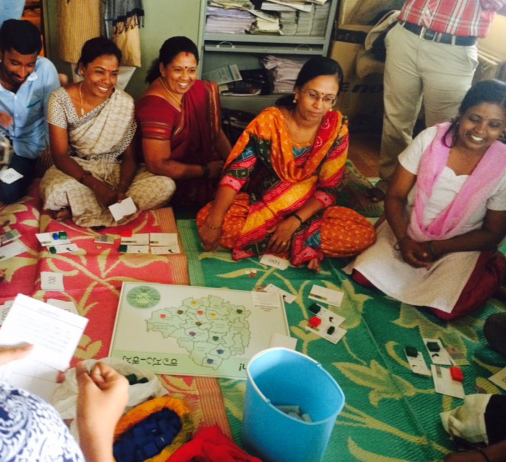
A session of ₹ubbish facilitated by our partner Fields of View. Image via FoV
If you’ve come this far on this blog, we urge you to take a few more steps towards a zero-waste journey – with a few aspects that can help you get started.
Knowing our waste
Understanding what makes up the waste in your home and workplace can be a first step in working towards reducing and eliminating it. For example, are the food packages forming the larger chunk of waste at your home? Maybe next time take a short walk to the sandwich shop around the corner instead of ordering in. In a corporate space, where there is a comparatively large volume of waste to deal with, a waste audit can be a valuable tool. You can reach out to one of the many waste management agencies like Saahas Zero Waste, Hasirudala, SWMRT, Waste Warriors or Skrap for this. Waste audits can help an organisation make better decisions about waste (and allied cost) reduction instead of taking a shot-in-the-dark measures.
We start where we can
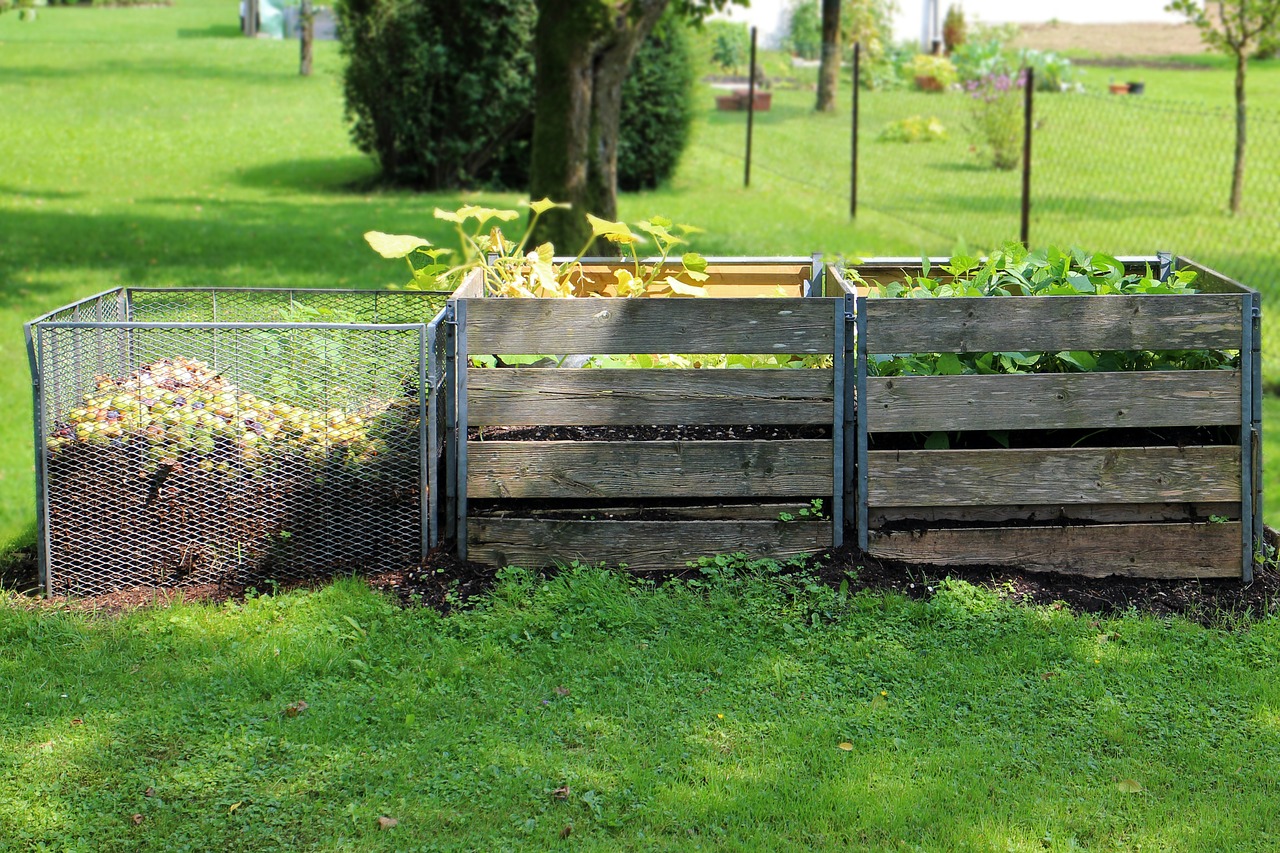
Composting prevents organic waste, which on average forms about 60% of domestic waste, from ending up in the landfills.
Often times waste reduction involves making small, simple choices. At work for example, bulk packaging can replace smaller sachets, printer settings can be changed to print on both sides, single-use plastic and paper cups can be replaced by reusable ceramic ones. Here’s a handy guide put together by Saahas that outlines the transition to low- and zero-waste office set-ups.
What are the small steps that matter at an individual level? Carrying our own water bottle and cutlery when we step out or using concentrated detergents and cleaners that can be diluted to last longer or starting to compost! Composting is also a fun activity to introduce to kids, and can be set up even in the smallest of spaces. Daily Dump composters are great to help you get started. There’s much more that we can all do if we start being mindful about the material choices of everyday life. Be creative and think where you would like to start from.
Segregation at source ensures proper disposal
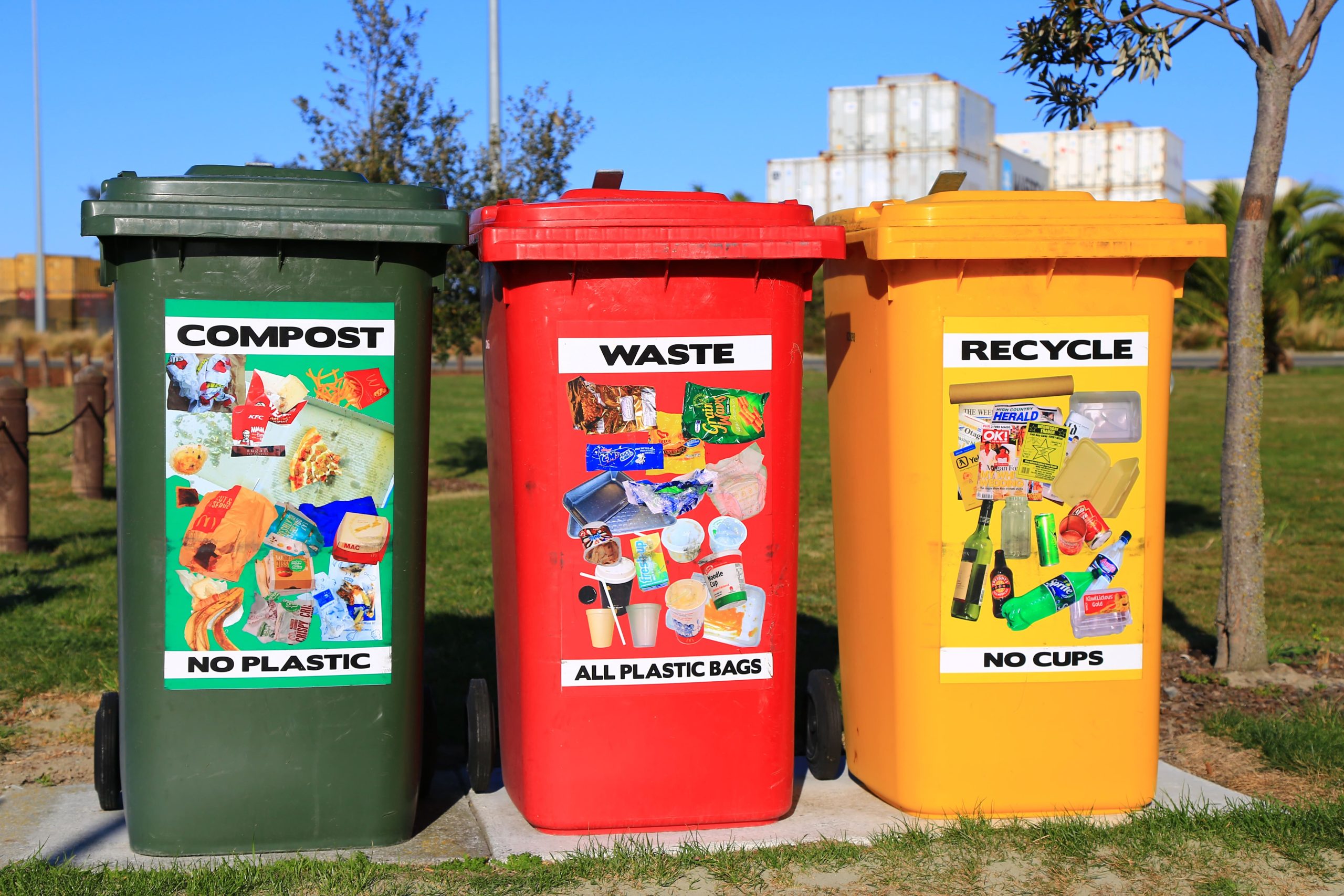
Image: Nareeta Martin, Unsplash
For individuals and organisations, waste management starts at the level of waste segregation. This is a small step that leads to big results downstream. For instance, clean up your pizza box and keep it separately for recycling. In offices, the e-waste generated can be collected quarterly and then sent to an e-waste recycling centre. Here’s a comprehensive guide by the NITI Aayog that delves into the details.
Starting on this journey towards a low- and zero-waste goal comes with the inevitable possibility of lagging-off, getting it wrong or even feeling overburdened and discouraged. But we can tell you that after the first few steps, it actually gets easier. As with anything else, in our homes and workspaces too, it takes time for the processes to fall in place. Then it’s just a matter of sticking to them. The important thing is we encourage each other to keep going, and if derailed, to get back on track.
We are in this together
When we think of better solutions, it makes sense to work together. Collaborative action is indispensable to waste management. Sourcing items in environmentally friendly packaging, making them last, disposing off them well, managing food waste, demanding for a change in production patterns towards a circular economy – there’s much that each one of us can add to the list. But these alternatives will become mainstream, better priced and more accessible only as the demand, investment and support for these grows in tandem.
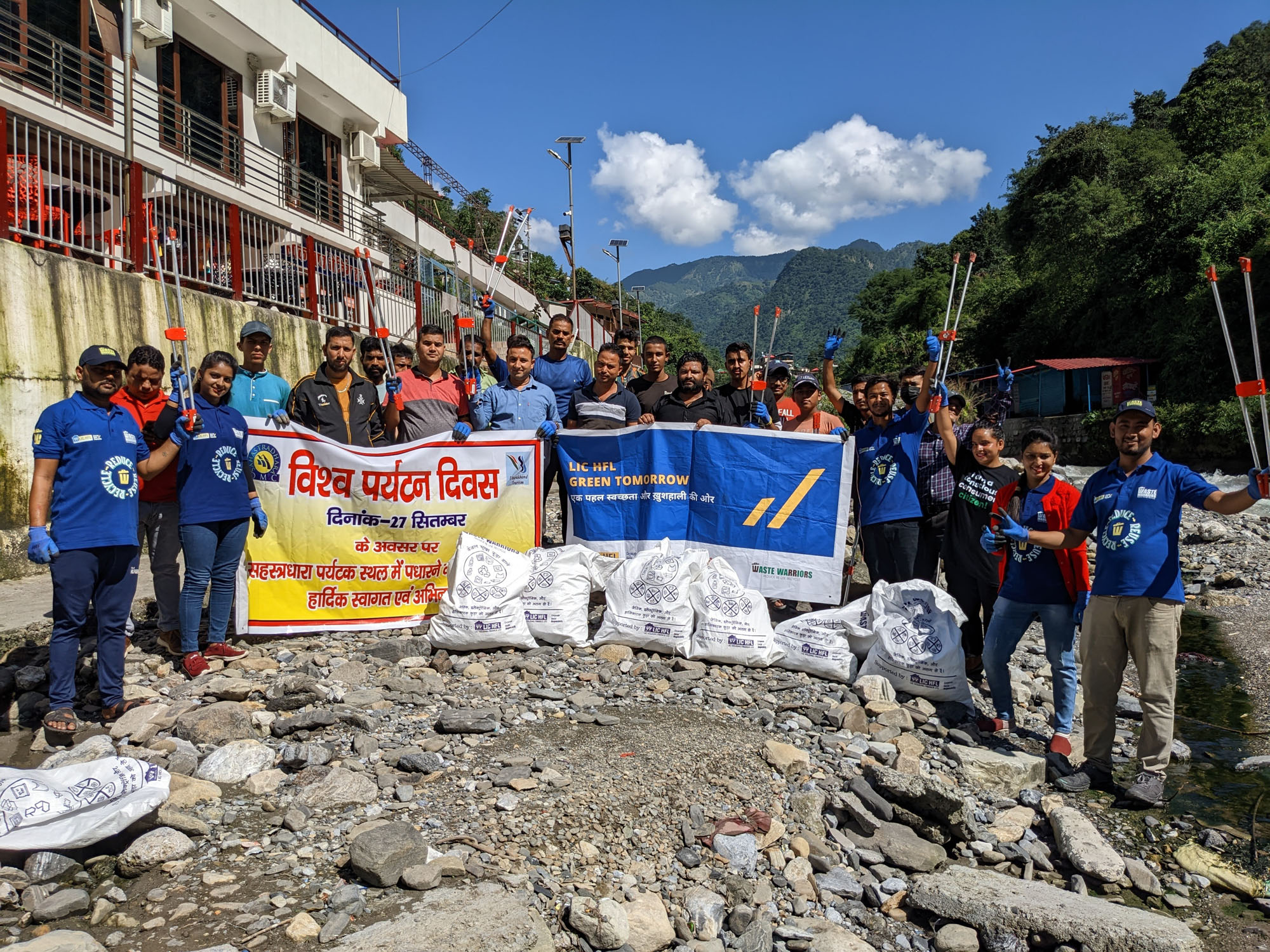
A clean-up session organised by our waste management partners Waste Warriors working in the Indian Himalayas. Image via Waste Warriors
Sharing the knowledge
Different things work for different people, and the starting point varies for each of us. If there’s something you know, speak to your coworker, your management, your friends and family. Different landscapes, households, organisations, companies will have different requirements, and some real constraints too. Like we mentioned earlier, zero-waste is an intention as much as it is a practice. When we’re on the same page in terms of our bigger goals, we can be more mindful of making better choices when the opportunity presents itself.
Kudos to the Rainmatter partners for always being open and more than willing to share the best practices from their own learnings. All of our collated waste management resources will soon be openly accessible to all. These include alternatives, suggestions, and services that can help you get started on or further your low-waste journey.

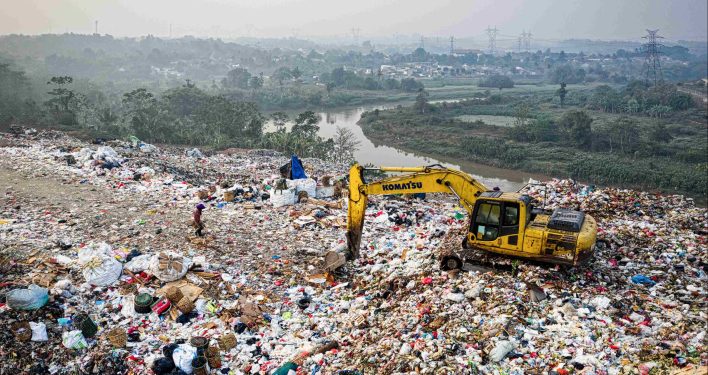
Inspiring take on zero waste! At Mindful, we support this vision with recyclable and compostable packaging solutions. Let’s make a difference together!